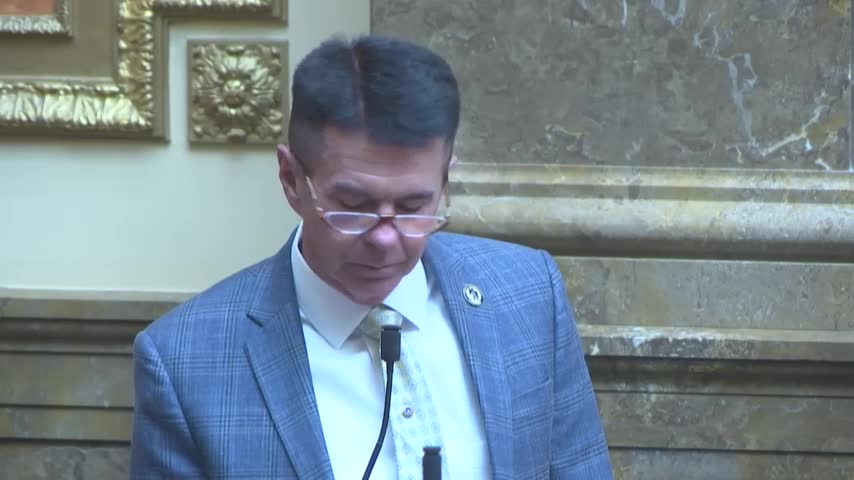Utah House approves bill tightening rules on modifying others’ political signs
Get AI-powered insights, summaries, and transcripts
Subscribe
Summary
The House passed first substitute HB 292 to bar affixing objects that hide or change political signs, add disclosure requirements for large lawn signs and move some municipal prohibitions into state law; an amendment reduced the penalty to an infraction.
The Utah House of Representatives on Tuesday passed first substitute HB 292, the Political Sign Amendments, after brief debate and a successful amendment that changed a criminal penalty to an infraction.
Sponsor Representative Tysha Tuscher, the bill’s sponsor, said the measure “is simply an attempt to make sure that we clarify in code that these types of things are not allowed,” and described circumstances in which one political sign was being altered by attachment of another sign or sticker that changed or obscured its message. “If you're gonna put something on someone else's sign, that that's not allowed,” she said.
The legislation clarifies that attaching or affixing any object to a political sign that “hides, blocks, obscures, or otherwise conceals from view the message or the image on the political sign” — or that “changes or misrepresents the intent of the message” — is prohibited. It also allows “any person” to remove or otherwise remedy a noncompliant political sign, and brings several existing municipal prohibitions (fixing signs to utility poles, street light poles, electric utility boxes or road signs) into the Utah Code so they are uniformly enforceable across jurisdictions.
The bill requires a paid-for disclosure statement on lawn signs larger than 24 by 18 inches, aligning that requirement with federal campaign disclosure expectations, the sponsor said. During discussion Representative Shepherd asked why the measure applies to signs larger than 24 by 18; Representative Tuscher said the change brings state code into alignment with federal election law practice and addresses instances when oversized signs lack a clear source.
Representative McPherson asked whether overlap of corners would be criminalized; Tuscher responded that the bill targets attachments that “hide, block or substantially conceal” a sign and that minor corner overlap would not violate the provision. She also clarified who may remove signs under the proposed text, saying candidates, property owners, campaign workers and government employees acting within their duties may remove noncompliant signs.
Representative Tuscher successfully moved to amend the bill on line 115 to strike the words “a class C misdemeanor” and replace them with “an infraction,” explaining that most municipal code provisions on similar matters are infractions and the sponsor did not intend to increase criminal penalties. The House then voted to pass first substitute HB 292 by a vote of 69-0; the bill will be sent to the Senate for consideration.
Ending: The measure now goes to the Utah Senate. If enacted, it will create a uniform state-level prohibition on affixing objects that alter or obscure political signs and impose disclosure requirements for larger lawn signs; enforcement mechanisms and penalties will be handled as infractions rather than misdemeanors under the House amendment.
